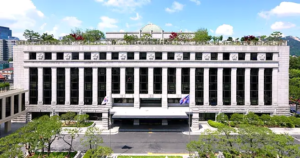Why April 4 Matters in South Korea’s Democracy
South Korea’s Constitutional Court is set to rule on April 4, 2025, on the impeachment of President Yoon Suk-yeol. This rare and high-stakes decision could mark only the second presidential removal in modern Korean history. The case has gripped the nation for months, and whatever the outcome, it’s likely to spark major political consequences.

What Happened?
In early 2025, opposition lawmakers submitted an impeachment motion against President Yoon Suk-yeol, citing abuse of power, constitutional violations, and interference with prosecutorial independence. The motion passed the National Assembly in February, triggering automatic suspension of presidential duties and judicial review by the Constitutional Court.
The key accusations involve:
- Obstruction of justice: Allegedly pressuring investigations involving political allies.
- Violation of the separation of powers: Particularly in relation to judiciary and police oversight.
- Neglect of public accountability in key state decisions, including disaster responses and civil liberties.
What Are the Key Legal Issues?
The Constitutional Court must now decide whether the alleged actions meet the constitutional threshold for removal. The main legal questions include:
- Did President Yoon’s actions clearly violate the Constitution or laws?
- Were these violations grave enough to justify impeachment?
- Is there sufficient evidence that these actions harmed democratic order or public trust?
In Korean law, not all violations qualify for impeachment. The court traditionally demands clear, direct, and serious breaches of law tied to governance.
What Happens if the Court Rejects the Impeachment?
If the court dismisses the case, President Yoon resumes office immediately. However, politically, the aftermath won’t be smooth. Likely scenarios include:
- Mass protests from opposition groups and civil society activists.
- Further political gridlock in the National Assembly, where opposition parties hold a majority.
- A weakened presidency, even if legally reinstated, due to eroded public trust.
What Happens if the Court Upholds the Impeachment?
If the court removes the president, it triggers:
- A 60-day timeline for a snap presidential election.
- The prime minister serves as acting president until a new leader is elected.
- Massive political realignment, with possible emergence of third-party candidates or coalition governance.
This would be only the second successful impeachment in Korean history, following the 2017 ousting of President Park Geun-hye. It would also redefine presidential accountability in Korea’s evolving democracy.
My Take
No matter the verdict, this impeachment trial is a stress test for Korea’s democratic institutions. It reflects deep public frustration not just with one leader, but with how power is used—and abused—in a rapidly modernizing society.
Americans familiar with their own impeachment sagas may see parallels, but Korea’s legal and cultural context is distinct. The court is respected for its independence, and the public is highly engaged in democratic processes.
This moment reminds us that rule of law and public trust go hand in hand. As a global democracy, Korea’s next steps will send a strong signal—not just to its own people, but to democracies everywhere.
Final Thought
How should democracies handle presidential power when legal violations blur into political decisions? South Korea may give the world a new case study on April 4.